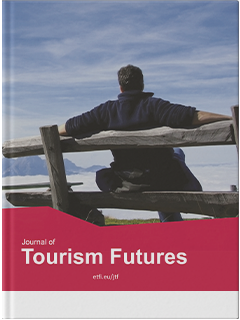Transformational tourism – a systematic literature review and research agenda
IF 6.6
Q1 HOSPITALITY, LEISURE, SPORT & TOURISM
引用次数: 4
Abstract
PurposeThis paper aims to examine critically the literature on transformational tourism and explore a research agenda for a post-COVID future.Design/methodology/approachA systematic review of the transformational tourism literature is performed over a 42-year period from 1978 to 2020.FindingsFurther research is required in terms of how transformative experiences should be calibrated and measured both in qualitative and quantitative terms, particularly from the perspective of how tourists are transformed by their experiences. Similarly, the nature and depth of these transformative processes remain poorly understood, particularly given the many different types of tourism associated with transformative experiences, which range from religious pilgrimages to backpacking and include several forms of ecotourism.Practical implicationsFuture research directions for transformational tourism are discussed with regard to how COVID-19 will transform the dynamics of tourism and travel, including the role of new smart technologies in the creation of enhanced transformational experiences, and the changing expectations and perceptions of transformative travel in the post-COVID era. In addition, the researchers call for future studies on transformational tourism to explore the role of host communities in the delivery of meaningful visitor experiences.Originality/valueTransformational tourism is an emerging body of research, which has attracted a growing level of interest among tourism scholars in recent years. However, to this date, a systematic review of published literature in this field has not been conducted yet in a holistic sense. This paper offers a framework for future research in this field.转型旅游——系统的文献综述和研究议程
目的本文旨在批判性地审查关于转型旅游的文献,并探索后新冠肺炎时代的研究议程。设计/方法论/方法从1978年到2020年,对转型旅游文献进行了长达42年的系统回顾。发现需要进一步研究如何从定性和定量的角度校准和衡量转型体验,特别是从游客如何因其体验而转变的角度。同样,人们对这些变革过程的性质和深度仍知之甚少,特别是考虑到与变革体验相关的许多不同类型的旅游业,从宗教朝圣到背包旅行,包括几种形式的生态旅游。实践意义讨论了转型旅游的未来研究方向,涉及新冠肺炎将如何改变旅游和旅行的动态,包括新的智能技术在创造增强的转型体验中的作用,以及后新冠肺炎时代对转型旅游不断变化的期望和看法。此外,研究人员呼吁未来对转型旅游进行研究,以探索东道社区在提供有意义的游客体验方面的作用。创意/价值转型旅游是一个新兴的研究领域,近年来吸引了旅游学者越来越多的兴趣。然而,迄今为止,尚未对该领域的已发表文献进行全面的系统综述。本文为该领域的未来研究提供了一个框架。
本文章由计算机程序翻译,如有差异,请以英文原文为准。
求助全文
约1分钟内获得全文
求助全文
来源期刊

Journal of Tourism Futures
HOSPITALITY, LEISURE, SPORT & TOURISM-
CiteScore
15.70
自引率
6.00%
发文量
64
审稿时长
34 weeks
期刊介绍:
 求助内容:
求助内容: 应助结果提醒方式:
应助结果提醒方式:


